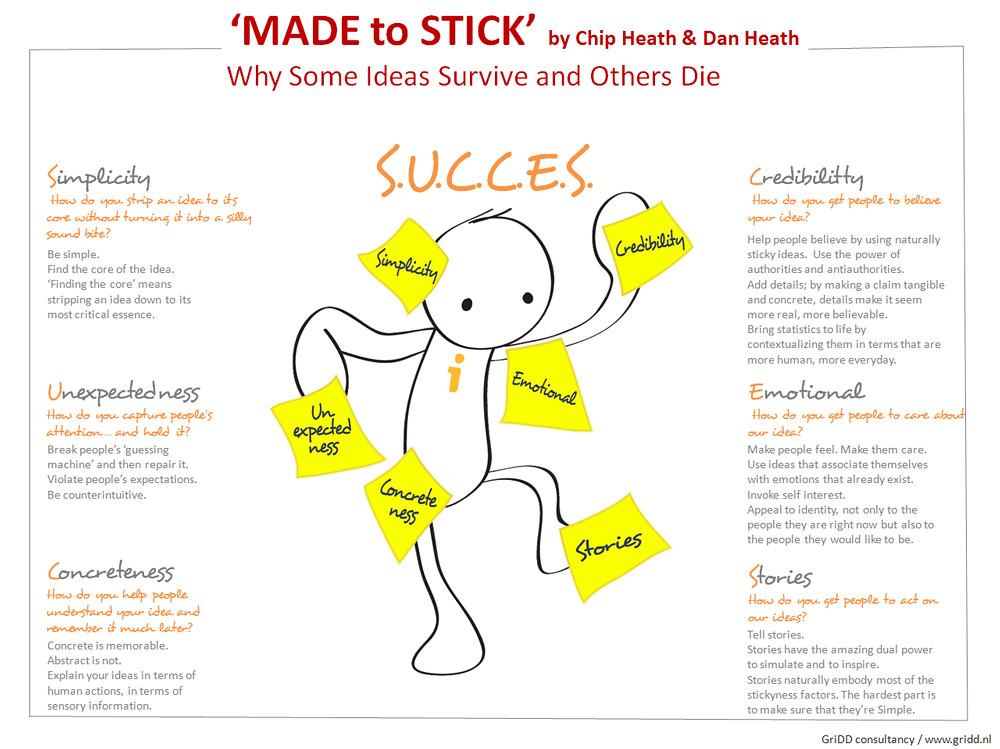

Based on a wide-ranging examination of psychology research, popular culture, and news headlines, they identify six criteria for shaping your message so it resonates. Made to Stick by brothers Chip and Dan Heath explores what makes some messages “stick” in the public’s consciousness while others go unheard or unremembered and explains how to create an idea that sticks. In our overstimulated and distracted society, great ideas and important messages often fail to gain traction, while bad ideas and falsehoods, such as urban legends, go viral and seem to stick around forever. He received his BS in industrial engineering from Texas A&M University and his PhD in psychology from Stanford.1-Page Summary 1-Page Book Summary of Made to Stick

Prior to joining Stanford, Heath taught at the University of Chicago Graduate School of Business and the Fuqua School of Business at Duke University. Heath has taught courses on organizational behavior, negotiation, strategy, international strategy, and social entrepreneurship. Popular accounts of his research have appeared in Scientific American, Financial Times, Washington Post, Business Week, Psychology Today, Vanity Fair, NPR, and a National Geographic television show. Heath’s research has appeared in Organizational Behavior and Human Decision Processes, Quarterly Journal of Economics, Cognitive Psychology, Journal of Consumer Behavior, Strategic Management Journal, Psychological Science, and Journal of Risk and Uncertainty. Heath is the coauthor (along with his brother, Dan) of a book titled Made to Stick: Why Some Ideas Survive and Others Die, published by Random House in January 2007. The material from that course, How to Make Ideas Stick, has been taught to hundreds of students including managers, teachers, nonprofit leaders, doctors, journalists, venture capitalists, product designers, and film producers. A few years back, Heath designed a course, now a popular elective at Stanford, that asked whether it would be possible to use the principles of naturally sticky ideas to design messages that would be more effective. His research examines why certain ideas - ranging from urban legends to folk medical cures, from Chicken Soup for the Soul stories to business strategy myths - survive and prosper in the social marketplace of ideas. Heath is the Thrive Foundation for Youth Professor of Organizational Behavior, Emeritus at Stanford Graduate School of Business.


 0 kommentar(er)
0 kommentar(er)
